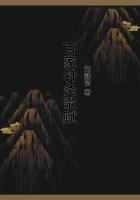Space, Time, Matter, Motion, and Force §46. That sceptical state of mind which the criticism of Philosophyusually produce, is, in great measure, caused by the misinterpretation ofwords. These have by association acquired meanings quite different from thosegiven to them in philosophical discussion; and the ordinary meanings beingunavoidably suggested, there results more or less of that dream-like illusionwhich is so incongruous with our instinctive convictions. The word phenomenonand its equivalent word appearance, are in great part to blame for this.
In ordinary speech these always imply visual perceptions. Habit almost, ifnot quite, disables us from thinking of appearance except as something seen;and though phenomenon has a more generalized meaning, yet we cannot rid itof associations with appearance. When, therefore, Philosophy proves thatour knowledge of the external world can be but phenomenal -- when it concludesthat the things of which we are conscious are appearances; it inevitablysuggests an illusiveness like that to which our visual perceptions are soliable. Good pictures show us that the aspects of things may be very nearlysimulated by colours on canvas. The looking-glass distinctly proves how deceptiveis sight when unverified by touch; as does also the apparent bend in a straightstick inclined in the water. And the cases in which we think we see somethingwhich we do not see, further shake our faith in vision. So that the implicationof uncertainty has infected the very word appearance. Hence, Philosophy,by giving it an extended meaning, leads us to think of all our senses asdeceiving us in the same way that our eyes do; and so makes us feel ourselvesin a world of phantasms. Had phenomenon and appearance no such misleadingassociations, little, if any, of this mental confusion would result. Or if,when discussing the nature of our knowledge, we always thought of tactualimpressions instead of visual impressions -- if instead of the perceptionsof objects yielded by our eyes we always insisted upon thinking of the perceptionsyielded by our hands, the idea of unreality would in large measure disappear.
Metaphysical criticism would then have merely the effect of proving to usthat feelings of touch and pressure produced by an object give us no knowledgeof its nature, at the same time that the criticism would by implication admitthat there was a something which produced these feelings. It would proveto us that our knowledge consists simply of the effects wrought on our consciousness,and that the causes of those effects remain unknown; but it would not indoing this tend in any degree to disprove the existence of such causes: allits arguments tacitly taking them for granted. And when the two were alwaysthought of in this immediate relation, there would be little danger of fallinginto the insanities of idealism.
Such danger as might remain, would disappear on ****** a further verbalcorrection. We increase the seeming unreality of that phenomenal existencewhich we can alone know; by contrasting it with a noumenal existence whichwe imagine would, if we could know it, be more truly real to us. But we deludeourselves with a verbal fiction. What is the meaning of the word real? Inthe interpretation given to it, the discussions of philosophy retain oneelement of the vulgar conception of things while they reject the rest, andcreate confusion by the inconsistency. The peasant, on contemplating an object,does not regard that which he is conscious of as something in himself, butbelieves it to be the external object itself: to him the appearance and thereality are one and the same thing. The metaphysician, however, while hiswords imply belief in a reality sees that consciousness cannot embrace it,but only the appearance of it; and so he transfers the appearance into consciousnessand leaves the reality outside. This reality left outside, he continues tothink of much in the same way that the peasant thinks of the appearance.
The realness ascribed to it is constantly spoken of as though it were knownapart from all acts of consciousness. It seems to be forgotten that the ideaof reality can be nothing more than some mode of consciousness; and thatthe question to be considered is -- What is the relation between this modeand other modes?
By reality we mean persistence in consciousness: a persistence which iseither unconditional, as our consciousness of space, or which is conditional,as our consciousness of a body while grasping it. The real, as we conceiveit, is distinguished solely by the test of persistence; for by this testwe separate it from what we call the unreal. Between a person standing beforeus and the idea of such a person, we discriminate by our ability to expelthe idea from consciousness and our inability, while looking at him, to expelthe person from consciousness. And when in doubt as to the trustworthinessof some impression made on our eyes in the dusk, we settle the matter byobserving whether the impression persists on closer inspection; and we predicatereality if the persistence is complete. How truly persistence is what wemean by reality, is shown in the fact that when, after criticism has provedthat the real as presented in perception is not the objectively real, thevague consciousness which we retain of the objectively real, is of somethingwhich persists absolutely, under all changes of mode, form, or appearance.
And the fact that we cannot form even an indefinite notion of the absolutelyreal, except as the absolutely persistent, implies that persistence is ourultimate test of the real whether as existing under its unknown form or underthe form known to us.














